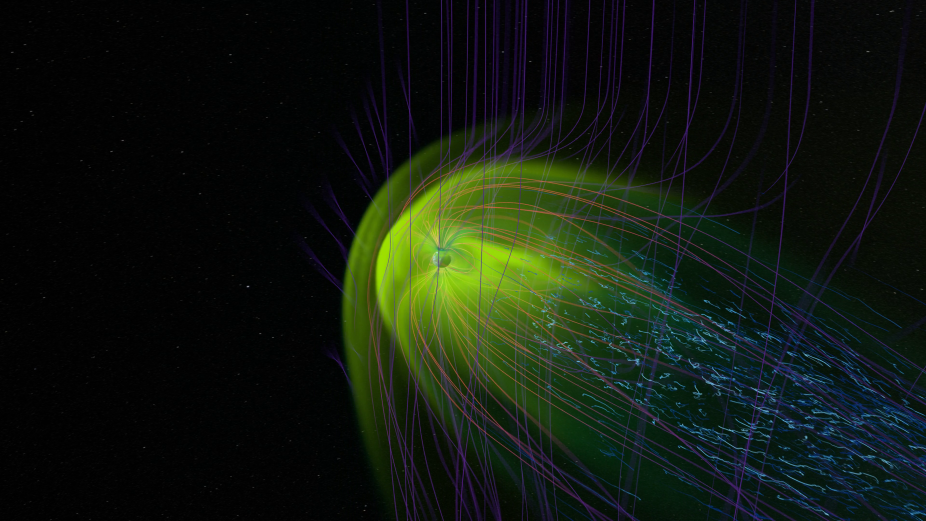When the Sun strikes: How space weather impacts our high-tech world

NASA SVS and CGS
7:00 – 8:30 pm MDT
Imagine if a storm in space could disrupt your GPS, delay your flight, or even knock out power. These aren’t scenes from a science fiction movie, they’re real effects of space weather. Caused by activity from the Sun, like solar flares and other eruptions, space weather can send bursts of energy and particles toward Earth. While we don’t feel these directly, they can seriously affect systems we rely on every day.
In this Explorer Series lecture, Edward Oughton and Michael Wiltberger will dive into what space weather is, how it forms, and why it matters. They’ll explain how researchers at NSF NCAR are working to better understand these solar storms, so we can protect the technology and infrastructure that modern society depends on.
Michael Wiltberger
Dr. Michael Wiltberger is the Deputy Director of the High Altitude Observatory (HAO) at the National Center for Atmospheric Research. Prior to that he served as the Geospace Section in the Atmospheric and Geospace Science Division at NSF. His main area of research is the modeling of the magnetosphere and its interaction with the solar wind and coupled thermosphere-ionosphere system. Dr. Wiltberger earned his bachelor’s degree in physics from Clarkson University, Potsdam, NY, in 1993, and his PhD. in space plasma physics in 1998 from the University of Maryland, College Park. Amongst his many scientific accomplishments are pioneering work on the inclusion of ionospheric outflow and the application of advanced statistical analysis in global models and ground-breaking results proving the connection between localized reconnection and, so-called, Bursty Bulk Flows in high-resolution simulations of the magnetotail. During his career, Dr. Wiltberger also has served in many important community functions, including as chair of the GEM Steering Committee, vice-chair of the AMS Science and Technology Committee on Space Weather, and as member of the Space Weather Science and Applications Panel of the 2023 Solar and Space Physics Decadal Survey.
Edward Oughton
Dr. Edward Oughton’s research focuses on developing decision-support models of critical infrastructure systems. His research is highly multidisciplinary, drawing on analytical techniques from engineering and computer science, to answer new questions pertaining to policy, societal resilience and sustainable development. This has included developing novel risk analysis methods for assessing societal vulnerability to space weather hazards. Edward has published over 25 peer-reviewed papers and received over $1.7m in research funding from a variety of organizations, including NSF, UKRI, IMF, the World Bank, Cisco, the Canadian Space Agency and many other technology, finance and government institutions interested in critical infrastructure research.
Dr. Oughton holds an MPhil and PhD from the University of Cambridge and was later a Research Associate at the Cambridge Judge Business School. Prior to GMU he was a Senior Research Associate at the University of Oxford. Edward is an Honorary Fellow of the British Antarctic Survey affiliated with the Space Weather and Atmosphere team. Past research accolades include winning ‘Best Paper 2019’ from the Society of Risk Analysis for his research on modeling the socio-economic impacts of space weather, as well as the TPRC48 Charles Benton Early Career Scholar Award. In 2017 he was nominated by the US Embassy for the International Visitors Leadership Program based on his critical infrastructure research.